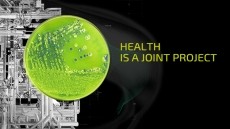China-made heparin scare spreads beyond US
Germany and Japan both recalling the drug.
German manufacturer Rotexmedica was the first to pull its blood thinner from the market, after around 80 severe allergic reactions were reported by patients who were given the drug since 14 February - a much higher number than usual. Although the product in question was manufactured locally in Germany, the drug's active pharmaceutical ingredient (API) has been associated with two Chinese suppliers. The country's drug regulators have since asked all German heparin producers to check if their product's API is also sourced from China, as is the majority of the world's supply, where it is extracted from pigs. The action has been prompted by a heparin health scare that has been going on in the US for the past couple of weeks involving a product sold by Baxter, where the API was sourced in China. The identity of the Chinese plant is Changzhou SPL, a factory in the city of the same name. This facility is actually 55 per cent owned by Scientific Protein Laboratories (SPL), the company that also supplies the heparin API from a site in Wisconsin, US, as part of an outsourcing deal with Baxter. According to the US Food and Drug Administration (FDA), the heparin in question has been linked to as many as 800 adverse reactions and up to 19 deaths, although Baxter claims the number of deaths linked to its product is actually only four. Baxter has since recalled suspended the production of its heparin in multi-dose vials, and recalled existing batches from the market. An FDA investigation into the issue has uncovered a contaminant in the product, the identity of which has not yet been identified. The presence of the substance was in fact missed by earlier quality tests, and was only uncovered when magnetic resonance imaging was used as part of the investigation. The contaminant constituted between five per cent and 20 per cent of the API in the samples in which it was present and appears to mimic heparin, raising questions as to whether it was added as a counterfeit API in a bid to reduce manufacturing costs. However, there my be another explanation. "At this point, we do not know whether the introduction was accidental or whether it was deliberate," the FDA said, adding that although the heparin contaminant has been identified, the agency is yet to prove a conclusive link between this and the events that led to the drug's recall from the market. Meanwhile, as a precautionary measure only, three unidentified pharmaceutical firms in Japan have taken a zealous approach to the situation and recalled their products from the market, due to a possible association with China-made API, even though there have been no adverse events reported in the country relating to heparin produced by SPL. "The three Japanese companies made clear that the recall was simply a precaution, as there has not been a pattern of adverse reactions to heparin reported in Japan similar to what has been observed in the US and Germany," SPL said in a statement. The decision is perhaps not surprising given Japan's approach to its pharmaceutical industry. A spokesperson from the country's largest dedicated contract manufacturer, Bushu Pharmaceuticals told Outsourcing-Pharma.com that Japan's pharma industry has the most stringent expectations in terms of quality and cleanliness in the world and anything less than perfection is simply not tolerated. "If a drug is associated with an adverse event that sparks a recall from the Japanese market, consumers are very unlikely to ever trust that product again," he explained. Moreover, Japan is highly wary of Chinese made products at the moment, having just uncovered a food poisoning incident linked to China - 10 people in became sick between December and January after eating Chinese-made frozen dumplings contaminated with methamidophos, a toxic organophosphate pesticide. Since then, traces of pesticide have been found in further shipments of dumplings exported from China to Japan. The product in question has been pulled form the market.







